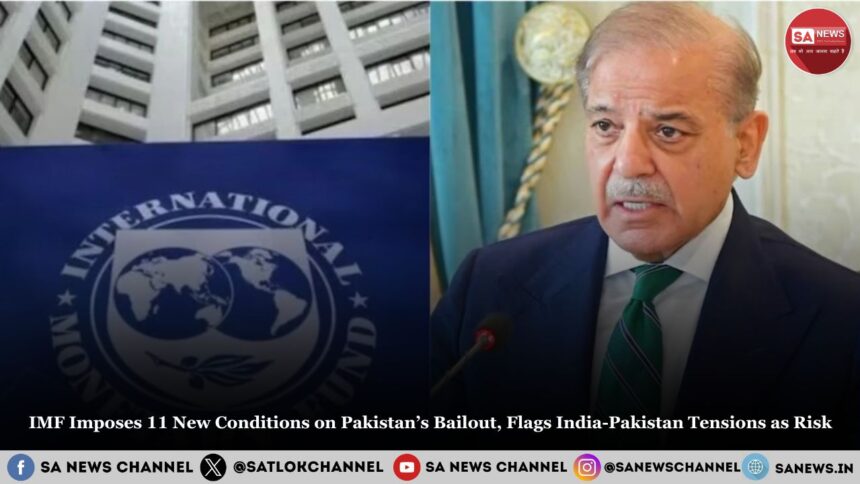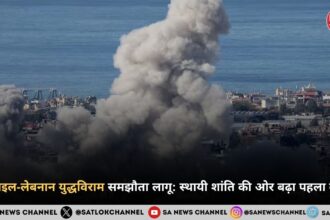Pakistan is grappling with severe economic challenges, including high inflation, dwindling foreign exchange reserves, and debt repayment issues. To navigate these problems, Pakistan has turned to the International Monetary Fund (IMF) for a $7 billion bailout package.
In its latest assessment, the IMF has imposed 11 new conditions, reinforcing its push for economic restructuring and revenue enhancement.
Key IMF Conditions:
- Approval of a Rs 17.6 trillion budget by Parliament.
- Increase in debt servicing surcharge on electricity bills.
- Removal of import restrictions on used cars older than three years.
- Implementation of new Agriculture Income Tax laws across provinces.
- Publication of a governance action plan to tackle systemic inefficiencies.
- Annual inflation-linked adjustments for cash transfer programs.
- Revision of electricity and gas tariffs to reflect actual market costs.
These reforms aim to boost revenue, cut fiscal deficits, and improve transparency, but they also risk placing a heavier burden on ordinary citizens through increased utility costs and new taxes.
IMF’s Concerns Over India-Pakistan Tensions
Beyond fiscal measures, the IMF has expressed concerns about escalating tensions between India and Pakistan, calling it a major risk to Pakistan’s economic stability.
Geopolitical Risks Highlighted:
- Deteriorating diplomatic relations over the past two weeks.
- Potential for military escalation or prolonged conflict.
- Risks of declining foreign investment and trade disruption.
While investors have yet to react strongly, any major escalation could severely impact Pakistan’s macroeconomic environment and reform momentum.
Pakistan’s Rising Defense Budget
In response to rising security threats, the Pakistani government has increased its defense budget by 12%, with projections for an 18% further rise in the near future.
Economic Implications:
- Increased defense spending could strain public finances.
- May lead to reduced allocations for education, health, and infrastructure.
- Makes it harder for Pakistan to comply with IMF fiscal targets.
The IMF has repeatedly stressed the need to balance national security with developmental spending, warning that excessive military expenditure can undermine economic recovery and reform efforts.
The Road Ahead: Challenges and Opportunities
Pakistan now faces a defining period, requiring strategic decision-making and policy coherence to stabilize its economy while maintaining regional peace.
Key Challenges:
- Ensuring economic reforms do not disproportionately impact citizens.
- Attracting foreign direct investment amid regional instability.
- Balancing defense and development spending for sustainable growth.
- Implementing governance reforms to build public and investor confidence.
The next few months will be critical. Meeting IMF conditions is vital to unlock further financial assistance, but regional diplomacy, especially with India, will play a key role in determining Pakistan’s economic future.
Spiritual Perspective: Relevance of Sant Rampal Ji Maharaj’s Gyan
In light of these complex political, economic, and social challenges, Sant Rampal Ji Maharaj emphasizes the need for a spiritual foundation in governance and societal systems. According to his teachings, true peace, prosperity, and justice are **only possible when leaders and citizens align their actions with the eternal principles found in the Holy Scriptures, such as the Srimad Bhagavad Gita, Quran Sharif, Bible, and Guru Granth Sahib—all correctly interpreted in light of Kabir Saheb’s eternal knowledge.









